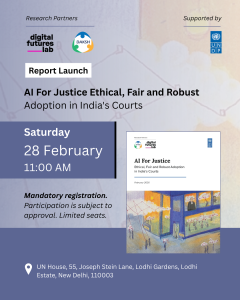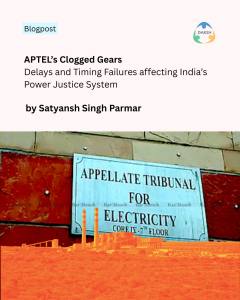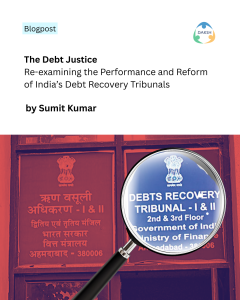

Judicial Data Regulation
The long-venerated principle of open justice (including open courts) requires that court proceedings must be accessible to the public. Open justice now increasingly means the ability of the community to access information about the courts through the internet. Indian courts are moving physical records and processes to digital ones, enabling remote access. Judicial data exists at the confluence of the strong currents of open justice and privacy. Citizens are presumed to have a right to inspect court records to ensure that courts are exercising their powers competently and fairly and within the limits of their mandate. However, records contain massive amounts of personal information about the various people involved in a given dispute. With increased access to online court records, it is only to be expected that the creation and exposure of these accumulated volumes of personal information will give rise to privacy concerns. The loss of “practical obscurity” lies at the heart of the debate about privacy risks from online access to court records.
These two draft papers on ‘Judicial Data Regulation’ aim to address the challenges resulting from digitisation and remote access, and discuss regulatory approaches to safeguarding open justice in the face of these challenges. The first paper, ‘Balancing Open Courts with the Right to Privacy – An Indian Perspective’, aims to inform the scholarly and policy discussions about the appropriate balance between public access and privacy in the context of judicial proceedings and judicial data. The second paper, ‘Open Courts and the Regulatory Framework for Judicial Data’, proposes a framework for the regulation of judicial data and access to court records.
DAKSH-Paper I – Balancing Open Courts and the Right to Privacy – An Indian perspective
News and Events
Discussion on ‘Framework for Regulating Judicial Data: Balancing Open Courts and Privacy
Podcast on Regulating Judicial Data
RECENT UPDATE


APTEL’s Clogged Gears: Delays and Timing Failures affecting India’s Power Justice System


The Debt Justice: Reexamining the Performance and Reform of India’s Debt Recovery Tribunals

-
Rule of Law ProjectRule of Law Project
-
Access to Justice SurveyAccess to Justice Survey
-
BlogBlog
-
Contact UsContact Us
-
Statistics and ReportsStatistics and Reports
© 2021 DAKSH India. All rights reserved
Powered by Oy Media Solutions
Designed by GGWP Design